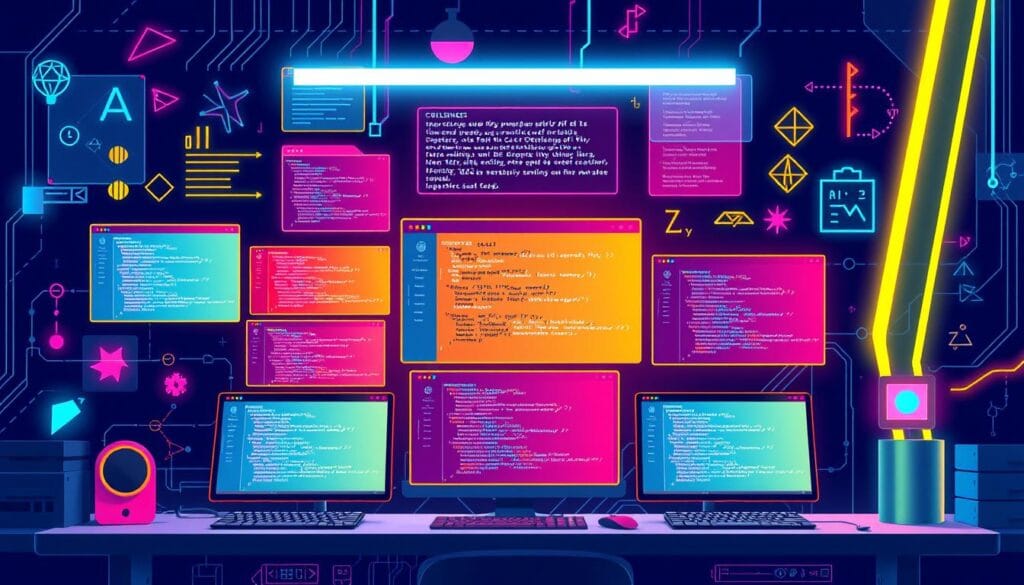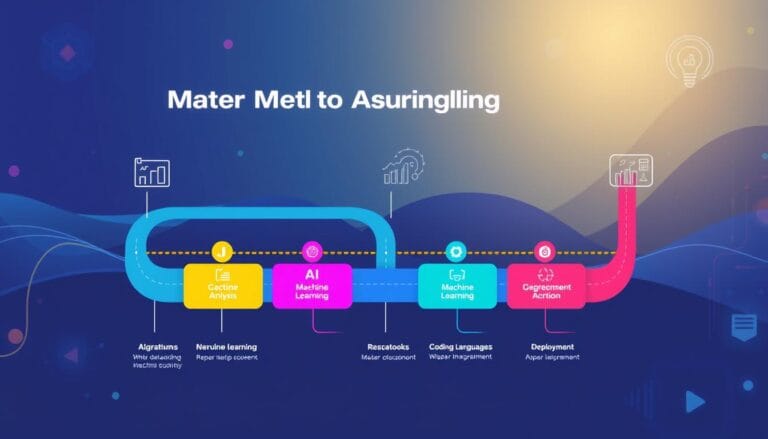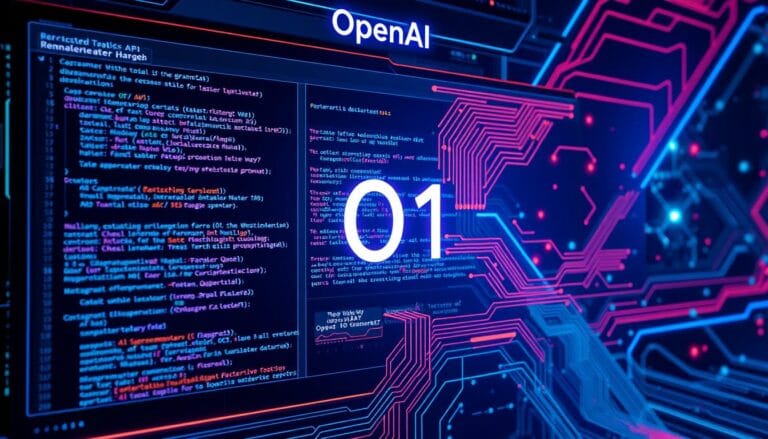Python Coding Prompts for AI Enthusiasts
Starting your coding journey can be thrilling. You might have solved simple tasks like “Hello, World!” or more complex puzzles. These challenges test your skills and improve your problem-solving. They prepare you for the tech industry’s fast pace.
Thank you for reading this post, don't forget to subscribe!Coding challenges are for everyone, no matter your skill level. Beginners can sharpen their skills, while experienced developers find new challenges. You’ll face everything from simple math to complex data structure problems. It’s a chance to show off your programming skills.
Table of Contents
Key Takeaways
- Coding challenges enhance your problem-solving abilities and programming skills.
- Challenges cater to programmers of all levels, from beginners to experts.
- Explore a wide range of coding prompts, including web development, data science, and DevOps-focused tasks.
- Tackle varying complexity levels, from basic “Hello, World!” variations to advanced data structure and algorithm problems.
- Hone your coding skills and stay ahead of the curve in the dynamic tech industry.
Understanding the Fundamentals of Coding Challenges
Starting your coding challenge journey means learning the basics first. You’ll need to know about variables, math, decisions, and functions. These basics are key to doing well.
Basic Programming Concepts You Need to Master
Before tackling harder challenges, get to know these basics:
- Variables: Learn how to declare, assign, and change different data types like integers, floats, and strings.
- Basic Math Operations: Understand how to do basic math like adding, subtracting, multiplying, and dividing.
- Conditional Statements: Get the hang of if-else statements and how they help make decisions in your code.
- Loops: Learn about for and while loops to do things over and over without repeating code.
- Functions: See how functions help break down your code into smaller, easier-to-manage parts.
- Data Structures: Get to know basic data structures like arrays and lists to handle and change data well.
Choosing the Right Programming Language
There are many programming languages out there. But some are easier for beginners and great for challenges. Look into Python, JavaScript, Java, and C++. They’re simple yet versatile, perfect for starting your coding challenge path.
Setting Up Your Development Environment
Before you can start coding, you need the right setup. This depends on your chosen language. You might need an Integrated Development Environment (IDE) or a text editor, plus libraries or frameworks. Use online guides, language docs, and community help to set up your environment correctly.
“The key to success in coding challenges is to master the fundamentals. Invest time in understanding the core programming concepts, and the rest will follow naturally.”
Focus on learning the basics well. This will prepare you for tougher challenges and help you grow as a developer. Remember, practice and keep trying are key. Enjoy the learning journey!
Getting Started with Beginner-Friendly Challenges
If you’re new to programming, don’t worry about the tough challenges you see. Start with beginner coding challenges that teach the basics. These challenges focus on simple programming ideas and how to solve problems.
Try the Hello World variations first. You’ll write greetings in different languages or create your own messages. These tasks teach you about basic input/output, variables, and working with strings.
Then, move on to basic math problems. You might add two numbers together or change minutes to seconds. These challenges help you understand data types, math operations, and how to control your code’s flow.
- The FizzBuzz problem is a great challenge for beginners. It teaches you about loops and if/else statements.
- The Palindrome Checker task is all about strings. It tests your skill in finding words or phrases that read the same forward and backward.
These beginner coding challenges might seem easy, but they’re crucial. They lay the groundwork for your programming skills. As you get better, you’ll tackle harder problems that will improve your problem-solving and understanding of programming.
“The journey of a thousand miles begins with a single step.” – Lao Tzu
So, don’t wait to start with these beginner challenges. They’ll boost your confidence, improve your coding abilities, and get you ready for more complex tasks later.
Essential Problem-Solving Techniques for Developers
Being good at solving problems is key for developers. It helps you deal with tough coding tasks and real-world projects. Learning the right problem-solving skills can make you better at software development.
Breaking Down Complex Problems
First, break down big problems into smaller parts. This makes it easier to understand and solve each piece. It keeps you focused and helps you solve problems step by step.
Implementing Algorithmic Solutions
Developing smart algorithms is important for developers. Knowing about data structures and algorithms helps you solve complex problems. Keeping up with new techniques can make you better at solving problems.
Testing and Debugging Strategies
Testing and debugging are crucial for good code. Use different tests to find and fix problems early. Learning how to use debugging tools can also help you improve your code.
Using these problem-solving techniques can make you more confident in your coding skills. Keep learning, practicing, and learning from mistakes. This will make you even better at solving problems.
“The essence of problem-solving is figuring out what matters and what doesn’t.” – Kevin O’Shaughnessy
Python Coding Prompts for AI Enthusiasts
If you love AI, you’ll find Python fascinating. It’s easy to use, has great libraries, and a big community. These prompts will challenge you, helping you apply your knowledge to real problems.
These prompts cover many AI topics, like machine learning and natural language processing. Start coding in Python and show off your creativity with these challenges.
Explore the Wealth of Python Coding Prompts
- Use Python’s random library to create unique prompts for language models.
- Write a Python function to find and fix biases in AI prompts, making them fair.
- Play with Python’s temperature settings to make language models more creative.
- Use Python to improve prompts, keeping them accurate and high-quality.
- Try Python’s Top P sampling to make AI text more fluent and coherent.
These prompts are just a start. They’ll improve your coding skills and teach you about AI advancements.
| Prompt Category | Frequency |
|---|---|
| Code Snippets | 25 |
| Function Creation | 9 |
| Script Development | 3 |
| Program Development | 2 |
| API Implementation | 2 |
| Class Creation | 2 |
| Algorithm Design | 2 |
| Error Handling | 3 |
| Rewriting Code | 2 |
| Data Processing | 4 |
| Library/Framework Demonstrations | 2 |
| Web Development Tasks | 4 |
| Mobile App Development | 2 |
| Game Development | 2 |
| Code Generation Requests | 4 |
Start with these Python prompts to explore AI content generation. With the right tools, you can push the limits of AI and help it grow.
Advanced Data Structure Challenges
Dive into the world of advanced data structure challenges. Here, you’ll test your problem-solving skills. These coding exercises go beyond the basics, focusing on complex data structures like arrays, linked lists, trees, graphs, hash tables, and dynamic programming.
Mastery of these data structures and algorithms is key. It’s essential for solving the most complex coding challenges. It also helps in designing robust software solutions.
Working with Arrays and Linked Lists
Arrays and linked lists are basic but crucial data structures. You’ll face challenges that test your sorting, searching, and optimization skills. These problems will improve your ability to manage and manipulate linear data structures.
From efficient sorting algorithms to creative array manipulations, these challenges sharpen your skills. They prepare you for handling linear data structures effectively.
Tree and Graph-Based Problems
Tree and graph problems require a deep understanding of traversal algorithms and balancing techniques. You’ll tackle challenges involving construction, traversal, and optimization of these data structures. These problems test your ability to reason about complex data relationships.
From finding the shortest path in a graph to implementing self-balancing binary search trees, these challenges are complex. They push you to think deeply about data relationships.
Hash Tables and Dynamic Programming
Hash tables and dynamic programming are essential for solving advanced coding challenges. Hash table problems focus on efficient data storage and retrieval. Dynamic programming challenges require optimizing problem-solving through recursive and iterative techniques.
Mastery of these concepts is crucial. It prepares you to tackle a wide range of complex problems. From improving search performance to finding optimal solutions, these skills are invaluable.
“The greatest challenge to any thinker is stating the problem in a way that will allow a solution.” – Bertrand Russell
By exploring advanced data structure challenges, you’ll improve your coding skills. You’ll also gain a deeper understanding of algorithmic thinking and problem-solving. These challenges will enhance your technical expertise, preparing you for complex programming tasks in your career.
Popular Coding Challenge Platforms and Resources
Aspiring developers and programming fans have many resources to improve their skills. The world of coding challenge websites and programming practice platforms is vast. It offers something for everyone, no matter their skill level.
HackerRank is a top choice for coding challenges. It has a huge collection of puzzles, data structure problems, and language tests. LeetCode is famous for its coding challenges. These are often used in technical interviews and for practice.
- CodeWars makes coding fun by turning it into a game. Users compete and level up through various challenges.
- Topcoder is a top platform for competitive programming. It hosts events where participants can show off their skills and get recognized.
- CodinGame uses games to teach coding. It makes learning fun and interactive.
Codeforces and Project Euler are great for those who want to dive deep into algorithms. They offer complex challenges in math and computation.
There are many more resources out there, like Exercism, Edabit, CodeChef, cyber-dojo, and AlgoExpert. Each one meets different needs and learning styles.
These coding challenge websites and programming practice platforms help you grow your skills. They also create a community of developers. This community shares knowledge, works together, and competes.

“Coding challenges are not just about solving problems; they’re about honing your problem-solving skills, expanding your knowledge, and pushing the boundaries of what you thought possible.”
Competitive Programming Strategies
Competitive programming is a thrilling realm that challenges developers to showcase their problem-solving prowess and coding expertise. As you embark on this journey, mastering the art of time management, optimization techniques, and best practices for code submission can be the key to your success.
Time Management During Challenges
Effective time management is crucial in competitive programming. When faced with a coding challenge, it’s essential to quickly assess the problem, prioritize tasks, and allocate your time wisely. Develop the ability to identify the core requirements, devise a solution, and execute it efficiently within the given time frame.
Optimization Techniques
Competitive programming demands a keen eye for optimization. Focus on improving the efficiency of your algorithms by reducing time complexity and exploring various data structures and techniques. Familiarize yourself with common optimization strategies, such as greedy algorithms, dynamic programming, and divide-and-conquer methods, to tackle even the most complex problems.
Best Practices for Code Submission
When it comes to code submission, attention to detail can make all the difference. Adopt best practices such as clear and concise commenting, meaningful variable naming, and thorough testing before submission. These simple steps can enhance the readability and maintainability of your code, ultimately impressing the judges and increasing your chances of success.
Hone your competitive programming skills by consistently practicing, participating in coding challenges, and building connections within the community. With a strategic approach and a dedication to continuous improvement, you can position yourself as a formidable competitor in the world of competitive programming.
Real-World Application Projects
Real-world application projects help bridge the gap between coding challenges and practical software development. They offer a chance to apply your skills and tackle real-world problems. You can build web applications, mobile apps, data analysis tools, or AI-powered systems.
These projects help you understand the software development lifecycle. They also let you create a portfolio that showcases your abilities to potential employers.
Projects range from facial recognition to virtual assistants and stock price predictors. They cover AI and machine learning domains like computer vision and natural language processing. By working on these projects, you’ll deepen your understanding of these technologies.
You’ll also prepare yourself for tackling complex AI challenges in the future.
Whether you’re interested in healthcare, finance, retail, or environmental science, there’s a project for you. The machine learning projects outlined here cover a wide range of industry applications. This allows you to explore your interests and build a comprehensive portfolio.
By following the recommended steps, you’ll gain hands-on experience. You’ll learn about collecting and preprocessing data, constructing data models, and training them. This experience will help you through the entire machine learning project lifecycle.







